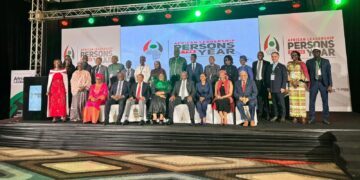By Alieu Amara Suwu
Following a reading of the Appropriation Act of the 2025 Financial Year and heated debate on the same, Parliament has commenced the scrutinization of this act.
The Act, after being committed to the second stage and then to the committee stage, standing on the leg of section 112 of the Constitution of Sierra, 1991, Act No. 6 of 1991, and section 66 of Standing Orders of Parliament, is before the Sub-appropriation committee that is being divided into twelve groups. These groups, composed of members of Parliament with the exception of the parliamentary leadership, have summoned various ministries, departments, and agencies (MDAs) to vet their budget requests: what they spent and how their allocated funds for the previous years were spent. These questions are not based on mere statements by the vote controllers of these MDAs; they are evidence-based by submitting supporting documents to ascertain various claims.
This process—budget monitoring—in Parliament is the process of comparing the actual expenses and revenues to the established budget forecast. It is important to ensure that the budget is being implemented as intended and that the public has access to budget proposals. Here are some ways that Parliament can monitor the budget:
Committee of Supply: This is a critical phase in the budget process, where MPs scrutinize budgetary allocations. The depth of scrutiny by MPs can determine how well resources are managed and used.
In-depth hearings: Regular hearings on the key findings of audit reports can help ensure that responsible officers are held accountable.
The process is strongly backed by section 112 (1) of the Constitution of Sierra Leone 1991 and complemented by the section 66 Standing Orders of Parliament: “Procedure in Committee of Supply: (1) Parliament to the deliberations of the whole House in committee, this exercise shall include consideration of the policies underlying the financial resources, the constraints of the organizations, the adequacy or otherwise of the accountants, and examine a series of Heads of Expenditure allocated to them by the finance estimates, their structures of priorities, efficient and effective use of both human and financial resources, the constraints of the organizations, and the adequacy or otherwise of the financial allocation and report to the whole House in Committee of Supply.
During this fact-finding procedure, oral and written questions are asked by an MP or a group of MPs to one or more ministers; those questions that pertain to general government policy are addressed to the finance minister. He cannot cause himself to be represented. These questions are asked briefly and limited strictly to those elements that are essential for the understanding of the question.
As a journalist, I have been following the process with keen attention, noting my observations and concerns. This will enable me to give a comprehensive report on all MDAs who appeared before the committee and outline those that failed to appear as witnesses. It will also enable me to adequately enlighten the public about the committee’s work.























